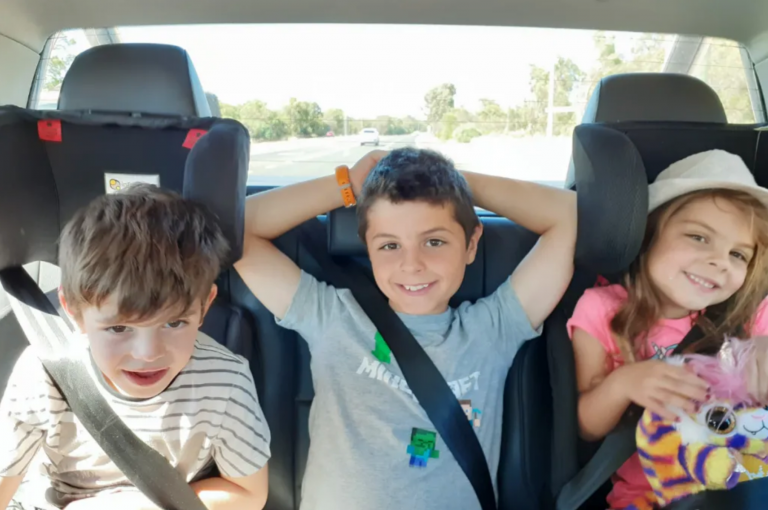Whether you’re scaling, growing or merging, transformational change brings with it enormous opportunities – and responsibilities – to pulse-check how your organization invests in its working caregivers. Now more than ever, organizations need to lean in to what their people are needing to ensure a healthy and happy workforce.
To learn more about this, Head of Customer Success at Circle In, Julia Bickley, chatted to Annaliese van Riet, General Manager, Experience and Culture about how the merger at Lendi Group heralded some welcome changes.
What does the data say?
Julia referenced Circle In’s global survey of over 450 people that showed:
- 9/10 say family is more important than work
- <50% feel a sense of belonging at work
- 7/10 say they are not coping
- 1 in 3 are thinking of leaving their current employer.
Above all else, this data tells us just how important it is for organizations to listen to, and support their people. In fact, there’s never been a more critical time to provide truly meaningful support – it’s what people need and expect from their employer in this current climate.
Annaliese and Julia agreed that organizations need to look beyond policy to ensure people are being supported at any given particular stage of life – from menopause to retirement and everything in between.
“Policies can’t just sit in isolation, it’s speaking through initiatives and the day-to-day experience”.
One Size Doesn’t Fit All
The panel spoke about the importance of acknowledging the diverse needs of the entire workforce, and addressing this broad audience through policies but also programs, benefits and staff engagement. This is core to developing a great EVP.
Annaliese is a big fan of an “audience-led approach to all things people and culture”. This means understanding who the audience is, tapping into the insights that they offer, and then adjusting how you deliver your support.
For example, a new generation of ‘sandwich caregivers’ is emerging, where people are caring for their children as well as their aging parents. Employees that fall into this category need their workplaces to support them in both capacities.
“Caregiving comes in all different forms and constructs and we’re not just talking about parents of babies and young children, we’re talking about teenage children or beyond. People who may be caring for friends or neighbors, even their parents. And everyone’s experience is unique even within that.”
Flex Is Best
With some guardrails in place to meet specific business needs, Lendi Group now offers the ability to work on site, hybrid or fully remote. Annaliese noted that already this has enabled so many parents and caregivers to feel supported and thrive at work.
“Caregivers really do need that extra support more than ever before. COVID really sort of lifted the hood off of that in quite a dramatic way.”
A recent engagement survey showed that the introduction of permanent flex first ways of working was extremely well received. Annaliese shared that while the near 100% satisfaction rate was a huge win, it also highlighted how timely it was given people were at risk of being burnt out, especially caregivers who switch off from their 9-5 to then switch on to their “other job”. Flex first ways of working means that the team at Lendi Group can now strike a better balance between their work and family lives.
How Else is Lendi Group Supporting its Caregivers?
Even though they only merged in May 2021, Lendi Group has already made great strides when it comes to its EVP and supporting its people. Annaliese shared some of the key changes:
- Lendi Group launched an international remote working program where people can work up to four weeks abroad. While this has only been softly launched, there’s already a strong take up by employees looking to reconnect with, or provide caregiving to family overseas.
- A new, progressive parental leave policy was rolled out to reflect the post-merger changes. For Annaliese, a parental leave policy is just a foundation and needs to have other enablers around it to create the right inclusive ecosystem for employees to feel properly supported. This is where Lendi Group found the ideal synergy with Circle In.
“We actually have a broader audience going on here, which is just this bucket of quite diverse caregivers. So that’s where we started to look at how we actually provide more support well beyond the policy. And that’s really where this all came to life.”
- Lendi Group looked at how it supports its managers. Annaliese said managers are at the core of how you support your caregivers, but they also come with varied experience and abilities in this area of their role. For Lendi Group, one way to bridge this competence gap is having information available on Circle In.
Measuring Impact
At Lendi Group, measuring impact is a mix of qualitative and quantitative data.
One measure is to look at adoption rates. For example, a quarter of people leaders had registered on Circle In within a few months of signing up. Annaliese also tapped into other data to see what sorts of resources people are accessing within the platform.
“This is quite a significant chunk of our organization who are, I guess, the individuals that can make this stuff matter and make this stuff work.”
Lendi Group also runs employee surveys like engagement surveys, pulse surveys and feedback as a way of measuring impact. Annaliese spoke of the importance of anecdotal feedback in uncovering areas where staff need more support.
Julia agreed and explained that anecdotal feedback helps shape what content is delivered on the Circle In platform as well.
The panel agreed that the workplace isn’t a static environment, so it’s important to listen to your people and what they need at any given time. If those needs have changed over time, you need to act upon the shifting landscape.
“By asking those questions, opening up those conversations, it allows us to provide the right support at the right time.”
Driving Adoption Rates
The panel spoke about different ways organizations can encourage their workforce to engage with Circle In and take it beyond the people and culture function. The key piece of advice: go beyond the usual announcements route and have a combination of tactics.
For example:
- Create your allyship internally and identify your champions. This might be select people, leaders or senior executives who can help model that change. Annaliese said having executive sponsorship by Lendi Group’s co-founder, Sebastian Watkins, has really demonstrated how he is using the platform and supporting his team to do the same.
- Organize a launch panel and enable employees to share their own caregiving journey stories. Annaliese said this was really powerful and kicked off a great adoption rate.
- Run a live demonstration so employees understand how to get the most out of the tool.
- Leverage your Employee Resource Groups or diversity networks. Julia said this helps to get a strong sense of the key touchpoints and to inject relevant information so employees can access what they need.
“You need to make sure that what you’re offering is relevant and continues to evolve. Because the diversity of your workforce is constantly evolving.”
Circle In has developed a comprehensive family benefits package to help you reflect on your current offerings and policies and build a more holistic support experience for your workplace. You can download it here.
To view the on-demand webinar in full here.
If you’d like to learn more about how you can support your employees, click here to talk to us today.


